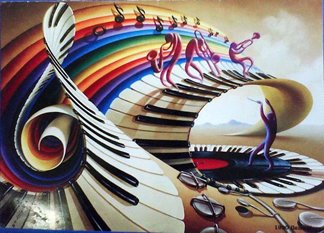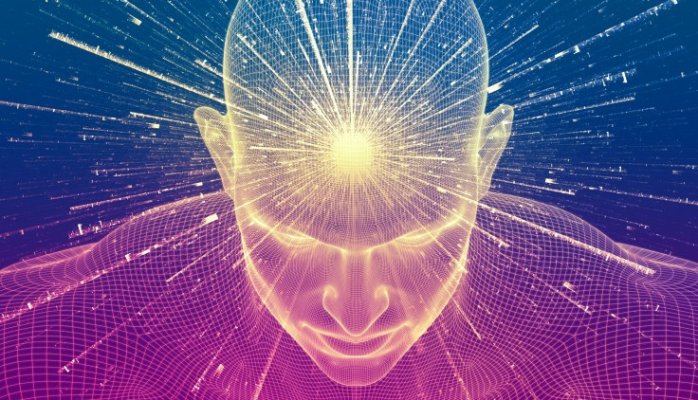The glorification of technique and reason, induced by the scientific and academic culture of recent centuries, have meant that the ability to be creative is relegated to laboratories or workshops. They give importance to the external characteristics that intervene in creation of inventions or works and to the analysis and interpretation that our mind makes of them. However, scientific revelations, such as those described in the article: Our heart also "thinks", are showing that we can have greater creativity using parts other than our brain
However, scientific revelations, such as those described in the article: Nuestro corazón también «piensa», are showing that we can have greater inspiration and creativity using other parts than our brain, connecting with the depths of our being and our heart, through inner silence or states called "no mind". It is there, where external factors cease to be so important, and internal factors, those related to the stillness of the mind or the so-called "nothing", become a priority.
Seeing the example of the most recognized musicians in history, such as Beethoven, Mozart, Bach, Chopin, Handel, Liszt, among others, each of them was acclaimed in their time mainly for their abilities to play instruments improvised, from the nothing. They didn't have to use their minds to produce these great improvisations, some turned into symphonies, beyond having to remember and transcribe them.
History has forgotten how these great characters developed their potential, as there was no scientific research that studied the way their creations arose.
What did these few great musicians do to develop their majestic works that are still praised more today than any other work composed in modern times? Why does it seem that this great capacity for inspiration and creativity of humanity has disappeared?
They connected with something beyond the mind, most likely with something closer to their heart or what some would call their spirit or soul.
 Music and art in general, helps to keep our attention flowing from the silence of the heart, experiencing only the present, so that our inner being awakens more vividly. Recent studies suggest that musical improvisation is capable of unlocking surprising creativity. In addition, due to the power to connect with the essence of our being, it is being increasingly used in multiple medical treatments.
Music and art in general, helps to keep our attention flowing from the silence of the heart, experiencing only the present, so that our inner being awakens more vividly. Recent studies suggest that musical improvisation is capable of unlocking surprising creativity. In addition, due to the power to connect with the essence of our being, it is being increasingly used in multiple medical treatments.
In many ways the world is drawing our attention so that we observe our inner world more than the outer world.
Unfortunately, we have been culturally trained to look only at the attractions of the world and accustom our mind to thinking wildly, without allowing our heart to express itself from silence.
Are we rediscovering in inner silence the way to find our dormant potentialities, which have been overshadowed by the connections of our brain with rationality and the outer world?
It is in this silence where we find more permanent happiness, since those that arise from the delight of our senses with the outside world are only temporary.




